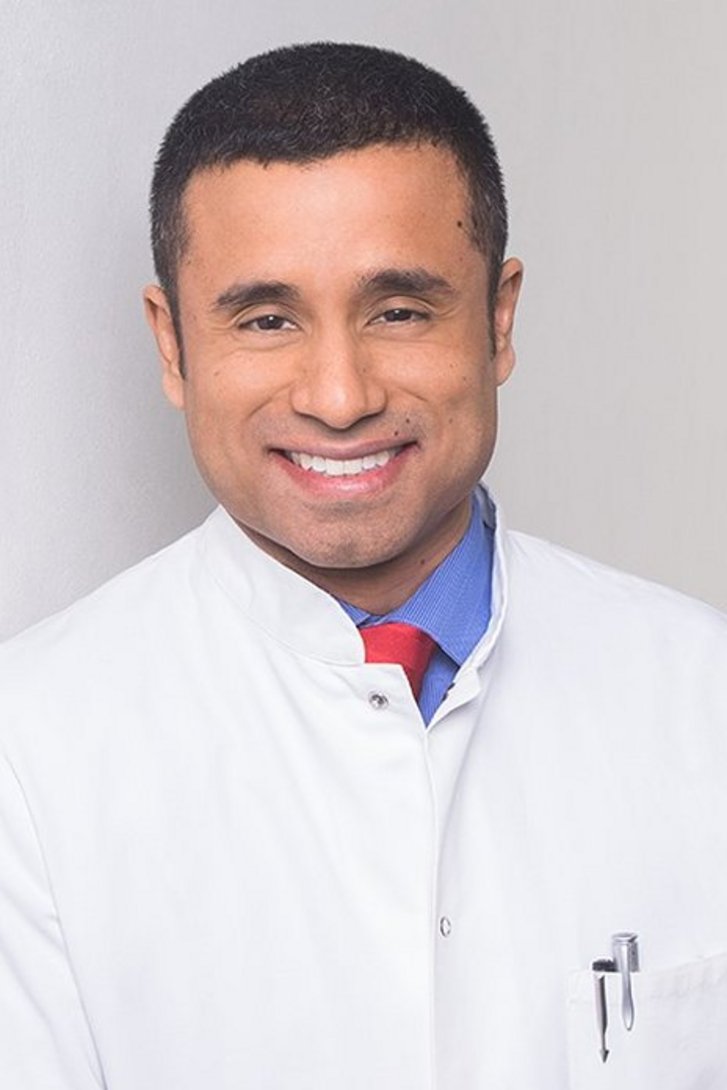Specialties
- Microsurgical operations for herniated discs and spinal canal stenosis
- Complex instrumented stabilizations on the cervical, thoracic and lumbar spine
- Revision surgery after previous spine operations
- Minimally invasive spondylodesis (spinal fusion)
- Kyphoplasty / vertebroplasty
- Intervertebral disc prostheses
- Dynamic stabilizations
- Tumors of the spine and spinal cord
- Minimally invasive and open peripheral nerve surgery
- Conservative pain therapy
- Infiltration and denervation techniques
- Interventional pain therapies (spinal cord stimulation and pain pumps)
Back and neck problems require a holistic perspective
The Baltic Sea Hospital Damp provides all diagnostic and therapeutic options for the treatment of back and neck problems. The unique interdisciplinary approach enables comprehensive advice, treatment and rehabilitation from a single source. The spine specialists work hand in hand with pain therapists, rheumatologists, orthopedists, physiotherapists and osteopaths as well as the Damp rehabilitation clinic.
Together towards the goal
We advise you on your spinal disease in an understandable way, carry out differentiated diagnostics and work with you to develop a targeted therapy plan.
Treatment philosophy
In the nutshell: first, always the least invasive therapeutic measure that is promising according to scientific criteria.
Special operational expertise
Cervical spine
A special focus is on the surgical treatment of complex diseases of the cervical spine. This includes in particular multisegmental spinal stenoses with impairment of the spinal cord (myelopathy), fractures, tumors, deformities and inflammatory diseases as well as previously operated patients with persistent complaints. Our standard care also includes the simple herniated disc of the cervical spine.
Lumbar spine
Our focus here is on the surgical treatment of degenerative spinal diseases and on revision surgeries (treatment of previously operated patients). These include spondylolistheses (sliding vertebrae), degenerative scolioses (deformities), spinal canal stenoses and herniated discs.
Elderly people
In the treatment of elderly people, there have been important findings and developments in recent years which, in many cases, enable safer, more efficient treatment. It is important to consider the medical characteristics of these patients. We have a great deal of experience in giving careful advice and, if necessary, operative care for older people. Common spinal diseases in old age are narrowing of the spinal canal, sliding vertebrae, degenerative scoliosis, but also osteoporotic fractures and spinal metastases.
Interventional pain therapy
With chronic pain patients, especially after previous operations on the spine, new spine operations often do not help and highly potent pain medication is not tolerated in the long term. In contrast, less invasive procedures such as spinal cord stimulation and pain pump systems have clearly shown their superiority in recent studies.
Conservative therapy
During an inpatient stay, intensive physiotherapeutic, physical and osteopathic treatments are carried out. We also have the opportunity to use various infiltration and denervation techniques. The aim is to free people from acute episodes of pain, to prevent pain from becoming chronic and - above all - to get to know people with their spinal problems better and to understand how they can be helped in the medium and long term. During the stay, further diagnostic findings are often gained that are important for the further treatment of the spinal disease.

